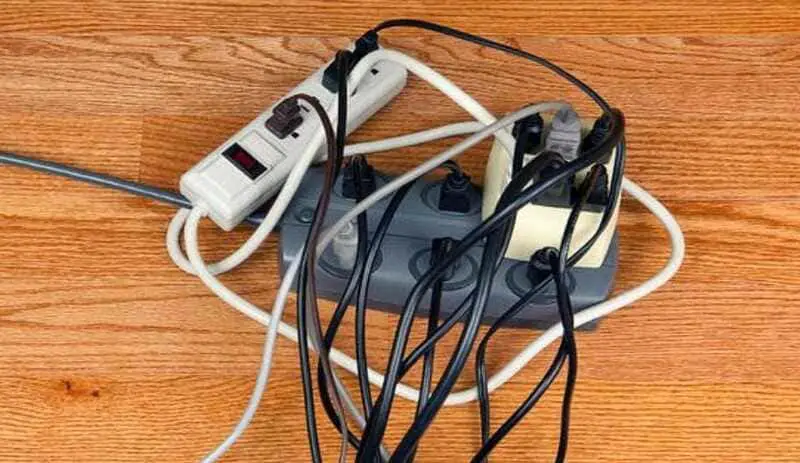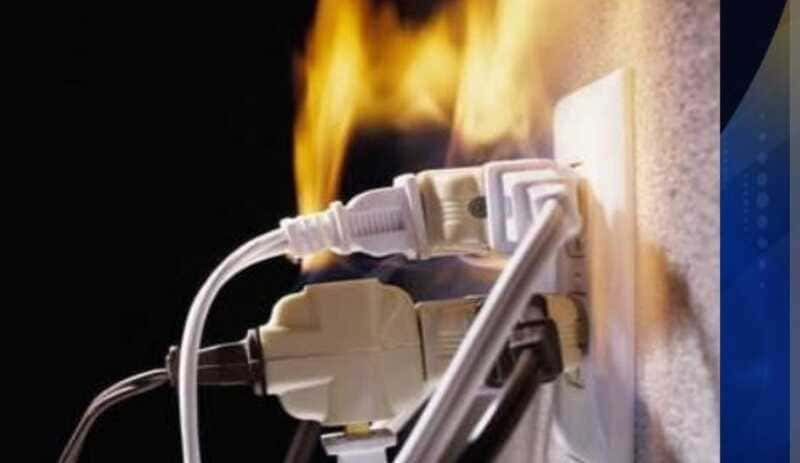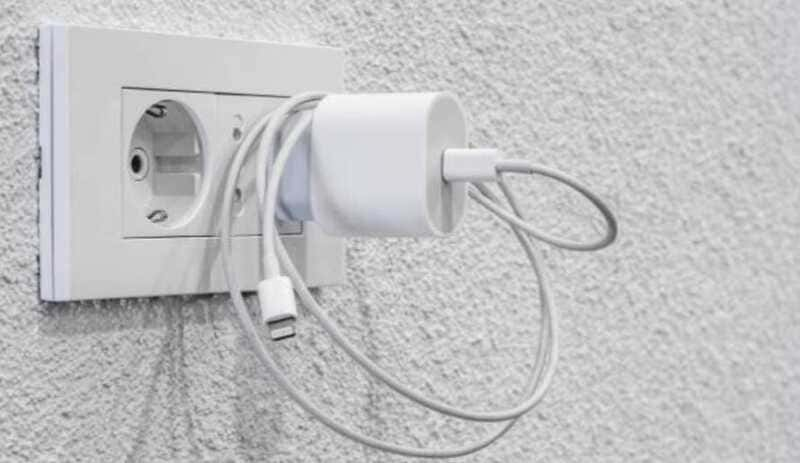Technology has changed our lives in many ways, and today it is hard to imagine a day without our electronic devices. Whether it’s our cell phone, tablet, laptop or game console, they all need to be charged regularly.
However, many of us don’t pay enough attention to how we use our chargers, which can have serious consequences. Misuse of chargers can affect the lifespan of our devices, increase our electricity bill, present electrical hazards and have a negative environmental impact.

In this article, we will explore the consequences of misuse of chargers in the home and provide solutions to avoid these problems and prolong the life of our electronic devices.
Excessive charging.
Excessive charging is one of the most common problems related to the consequences of misuse of home chargers. By leaving our devices plugged in for too long, or using inadequate or low-quality chargers, we can damage the battery and shorten the useful life of our electronic devices.
Overcharging can cause overheating problems, which can affect both the device battery and the charger. This can generate additional stress on the battery, which can reduce its lifespan and cause the device to have to be replaced prematurely. On the other hand, an overcharged charger can overheat and become permanently damaged, which means we will have to buy another one.

In addition, overcharging can also be a safety concern. An overcharged device can overheat and create a fire hazard. This can be especially dangerous if we leave our devices plugged in overnight or while we are away from home.
To avoid overcharging, it is important to use good quality chargers suitable for our devices. We should also avoid leaving our devices plugged in for too long, and unplug them as soon as charging is complete. By paying attention to how we charge our devices, we can prolong their lifespan and avoid the risks associated with misuse of chargers.
Electrical hazards.
The use of defective or damaged chargers can be dangerous and present serious electrical hazards. When a charger malfunctions, it can generate an overload or short circuit, which can cause a fire or electric shock. In addition, low-quality or counterfeit chargers may not meet safety standards, increasing the risk of damage to devices and people.
A defective charger can cause problems such as overheating, battery explosion and electric shock. If a charger is not designed to work with the device in question, it can generate excess voltage or current that can damage the device. On the other hand, if a charger is physically damaged, such as having a frayed cable or bent connectors, it can create a risk of electrocution or fire.
It is important to note that the risk is not limited to the devices themselves. In some cases, a faulty or damaged charger can short-circuit the plug, which can cause a fire in the house.

To avoid electrical hazards associated with the use of defective or damaged chargers, it is important to purchase good quality chargers and use them according to the manufacturer’s instructions. It is also important to regularly inspect chargers for signs of physical damage and replace them immediately if damaged. By taking preventive measures and using safe chargers, we can avoid the electrical hazards associated with the misuse of chargers.
Energy consumption.
Among the consequences of misuse of chargers in the home, excessive use of chargers can significantly affect our electricity bill. Often, we leave our electronic devices plugged in for hours, even after charging is complete, which means we are consuming more energy than necessary. In addition, many chargers continue to draw power even when the device is not plugged in, which is known as “standby consumption.”

Standby power consumption can represent a significant percentage of a household’s total energy consumption. Even if a single charger consumes only a small amount of power, when you add up the chargers of all the devices we have at home, the consumption can be quite high. This not only affects our electricity bill, but also has a negative environmental impact by increasing energy demand.
To reduce the power consumption of chargers, it is important to disconnect them from the power supply as soon as charging is complete. We can also use plugs with switches to cut off the power when they are not in use. In addition, it is important to purchase good quality chargers that have low standby consumption.
By reducing our energy consumption and using efficient chargers, we can reduce our electricity bill and have a positive impact on the environment.
Environmental impact.
Another consequence of the misuse of chargers in the home is that it has a significant impact on the environment. As the number of electronic devices we use on a daily basis increases, so does the number of chargers we use and, therefore, the amount of electronic waste we generate.
Poorly used chargers can generate excess energy consumption and greenhouse gas emissions. In addition, low-quality or counterfeit chargers may be made with hazardous and polluting materials, such as lead or mercury, which can have a negative impact on the environment.
To reduce the environmental impact of charger misuse, it is important to adopt efficient charging practices, such as disconnecting chargers from the power supply when not in use and using good quality chargers that consume less standby power. In addition, we can opt for chargers that are made from recycled materials and are recyclable.
It is also important to be aware of how to properly dispose of chargers and electronic devices. Many countries have e-waste recycling programs that allow materials to be recycled and reduce the amount of e-waste that ends up in landfills.
Overheating.
Misuse of chargers can cause overheating and damage our electronic devices. This is because chargers, like any other electronic component, can generate heat during normal operation, especially if used for long periods of time.
When a charger is used incorrectly, such as by plugging it into an outlet that is not suitable for the device, it can cause a rise in temperature and overheating. Overheating can be dangerous, as it can damage the electronic components of the device and reduce its lifespan.
In addition, some cheap or counterfeit chargers may not be designed to withstand a high load and can easily overheat, which increases the risk of damage to the device and, in extreme cases, can even cause a fire.
To avoid overheating and damage to devices, it is important to use good quality chargers tailored to the needs of the device. It is also important not to cover the charger while it is in use, as this can increase the temperature and the risk of overheating.
In conclusion, overheating due to misuse of chargers can be dangerous and damage our electronic devices. Using good quality chargers adapted to the needs of the device, together with avoiding covering the charger during use, are important measures to avoid overheating and protect our devices.
Myths and truths.
There are many myths and claims about the misuse of chargers and their consequences. Some of these claims are true, while others are not.
One of the most common myths is that it is safe to charge our electronic devices overnight. In reality, this can cause overcharging and reduce battery life. Another myth is that generic chargers are the same as the original ones. In reality, generic chargers may have different voltage and amperage characteristics, which can damage the device.
On the other hand, it is true that using defective or damaged chargers can be dangerous and lead to electrocution or fire. It is also true that cheap or counterfeit chargers may not be manufactured to the same quality standards as the originals and may be less safe.
Another true statement is that misuse of chargers can have a negative impact on the environment. Misused chargers can generate excess energy consumption and greenhouse gas emissions, and low-quality or counterfeit chargers may contain hazardous materials and pollutants.
How can we avoid misuse of chargers and extend the life of our electronic devices?
To avoid misuse of chargers and prolong the life of our electronic devices, it is important to follow some simple but effective recommendations.
First of all, it is important to always use original or good quality chargers adapted to the needs of the device. Generic or counterfeit chargers may be less safe and may damage the device.
Secondly, it is recommended to avoid overcharging devices and not to leave them charging overnight. It is important to disconnect the charger when the battery is fully charged to avoid overcharging and prolong battery life.
Thirdly, it is important not to use the devices while they are charging, as this can cause overheating and reduce the device’s lifetime.
It is also recommended not to cover the charger while in use and not to use defective or damaged chargers, as this can be dangerous and lead to electrocution or fire.
Finally, to reduce our impact on the environment, it is recommended to use energy-efficient chargers and to unplug chargers from the power outlet when they are not in use.
In conclusion, by following these recommendations, we can avoid misuse of chargers and prolong the useful life of our electronic devices. In addition, by using good quality, energy-efficient chargers, we can reduce our impact on the environment.

